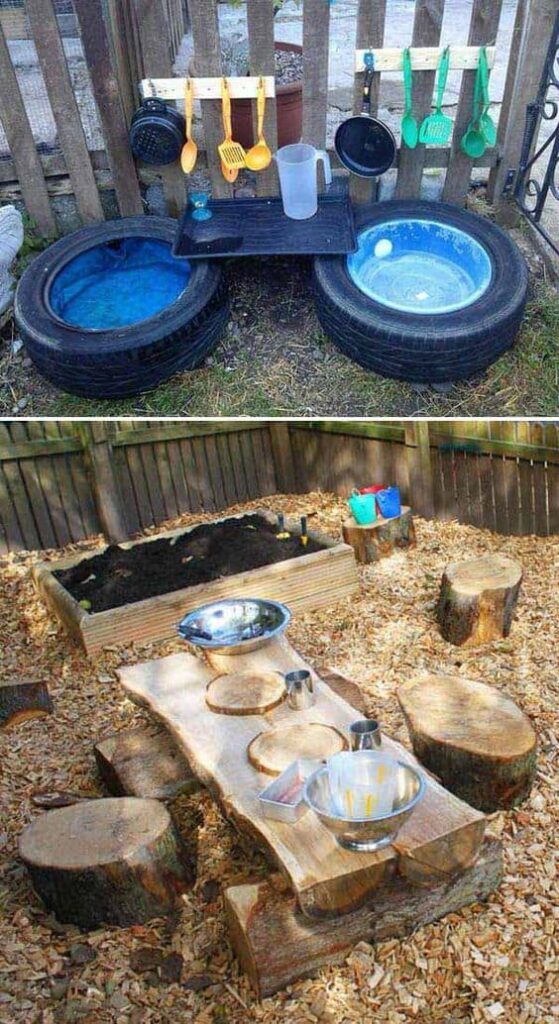Imagine embarking on a thrilling wilderness adventure, surrounded by the beauty of nature, and relishing the simplicity of outdoor living. One essential aspect of such escapades is mastering the art of wilderness cooking and storage. In this article, we’ll delve into the world of handmade containers that not only cater to your culinary needs but also blend seamlessly with the rugged charm of the great outdoors.
Crafting the Perfect Container: A DIY Approach
Choosing the Right Materials
Creating handmade containers for wilderness cooking starts with selecting the right materials. Opt for sustainable wood like cedar or birch, ensuring durability in the face of varying weather conditions. Remember, the goal is to forge a container that withstands the elements while exuding natural aesthetics. Crafting handmade containers for wilderness cooking and storage begins with a critical decision – choosing the right materials. The materials you select will not only determine the durability of your container but also play a pivotal role in its aesthetic appeal. Let’s explore ten key considerations when selecting materials for your DIY wilderness containers.
1. Sustainability Matters
Opt for materials that align with sustainable practices. Choose sustainable wood options like cedar or birch, ensuring that your container not only stands up to the elements but also contributes to a healthier planet.
2. Durability in the Wilderness
Wilderness conditions can be unpredictable. Prioritize materials known for their durability, capable of withstanding exposure to varying weather conditions, rough terrain, and the wear and tear of outdoor adventures.
3. Resistance to Moisture
Given the likelihood of encountering moisture in the wilderness, select materials with inherent resistance to water damage. This will ensure that your handmade container remains functional and visually appealing even in damp conditions.
4. Lightweight and Portable
Considering the need for portability in wilderness settings, opt for lightweight materials. Crafting a container that is easy to carry enhances the practicality of your DIY creation, making it an asset during outdoor excursions.
5. Compatibility with Food
If you plan to use your container for cooking, ensure that the materials chosen are food-safe. Look for options that do not impart any taste or harmful substances to the food stored within. Safety is paramount, especially in the wilderness.
6. Workability for Crafting
Ease of working with the chosen material is crucial during the crafting process. Select materials that respond well to woodworking tools, allowing you to shape and carve your container with precision and efficiency.
7. Aesthetic Appeal
While functionality is key, don’t underestimate the importance of aesthetics. Choose materials that resonate with the natural surroundings, adding to the visual charm of your handmade wilderness container.
8. Affordability
Consider your budget when selecting materials. Fortunately, there are many cost-effective yet durable options available. Striking a balance between affordability and quality ensures that your DIY project remains within financial reach.
9. Eco-Friendly Options
Make conscious choices that align with eco-friendly principles. Opt for materials that are easily recyclable or can be repurposed. This not only reduces waste but also contributes to a more sustainable outdoor lifestyle.
10. Local Sourcing
Whenever possible, source materials locally. This not only supports local businesses but also reduces the carbon footprint associated with transporting materials over long distances. Embracing local resources adds a unique touch to your wilderness container.
Choosing the right materials for your handmade wilderness container is a thoughtful process that involves balancing functionality, sustainability, and aesthetics. By considering these ten factors, you lay the foundation for a DIY project that not only meets your needs but also enhances your outdoor experience. Happy crafting!
Essential Tools for Crafting
Gather your toolkit before diving into the DIY process. Basic essentials include wood carving knives, sandpaper, and natural sealants. These tools will be your companions in transforming raw materials into functional and aesthetically pleasing wilderness containers.
Functional Designs for Culinary Success
Compact and Portable Containers
Crafting compact and portable containers is crucial for a successful wilderness cooking experience. Consider designs that allow easy transport without compromising on storage capacity. Think of it as a culinary backpack, where every inch counts.
Multi-Compartmentalized Storage
To elevate your wilderness cooking game, opt for containers with multiple compartments. This not only helps in organizing different ingredients but also adds a touch of sophistication to your outdoor kitchen. Dividers can be crafted from flexible materials to accommodate various food items.
Adding Style to Functionality
Personalized Engravings and Designs
Inject a personal touch into your handmade containers by adding engravings or designs. Whether it’s a unique pattern or your initials, this not only enhances aesthetics but also ensures that your container stands out in the wilderness. After all, who said functional can’t be stylish?
Utilizing Natural Elements
Nature provides an abundance of inspiration. Incorporate elements like pinecones or small rocks into your container design for a rustic and authentic feel. These natural additions not only blend seamlessly with the environment but also make your container a piece of art.
Sustainability Matters
Embracing Zero-Waste Principles
In the spirit of responsible outdoor living, focus on zero-waste principles during the crafting process. Choose recycled materials or repurpose old containers to reduce your ecological footprint. Being one with nature includes leaving minimal impact on the environment.
Biodegradable Sealants
Sealing your handmade containers is essential for longevity. Opt for biodegradable sealants to ensure that even if parts of your container find their way back into the earth, they won’t harm the environment. Sustainability is not just a trend; it’s a way of life.
The Ultimate Wilderness Experience
Cooking in Style
Armed with your handmade container, cooking in the wilderness becomes a delightful experience. Imagine the sizzle of food on an open flame, surrounded by the sounds of nature. Your handmade container not only serves its purpose but transforms the act of cooking into a celebration of the outdoors.
Storage Solutions for the Wild
Beyond cooking, these containers excel in providing storage solutions for your camping essentials. From utensils to spices, having a designated space for each item ensures that your wilderness abode remains organized and clutter-free.
Conclusion
In conclusion, crafting handmade containers for wilderness cooking and storage is an art that blends functionality with creativity. By choosing the right materials, incorporating functional designs, and embracing sustainable practices, you not only enhance your outdoor experience but also contribute to the preservation of the environment. So, the next time you embark on a wilderness adventure, let your handmade container be a testament to your love for nature and the joy of outdoor living. Happy crafting and happy cooking!







